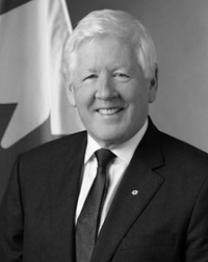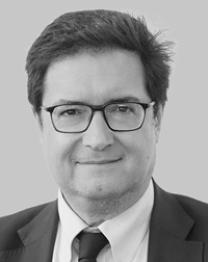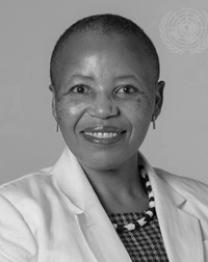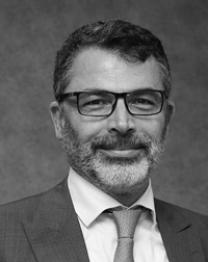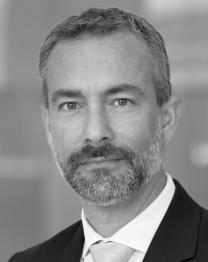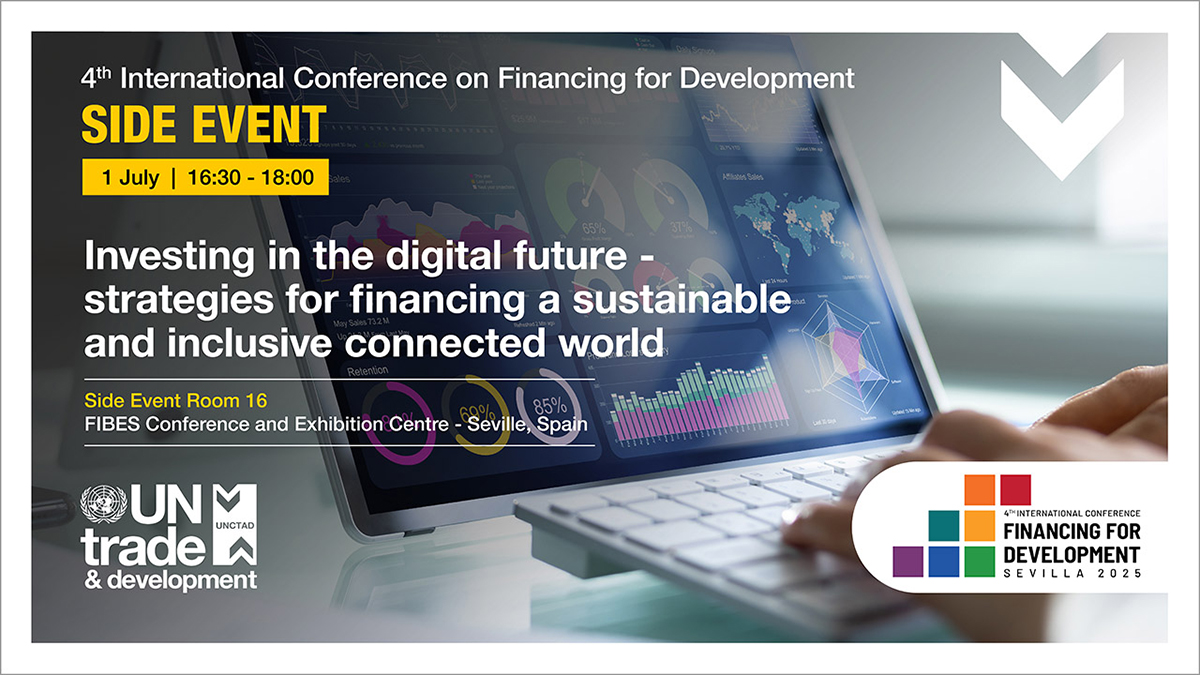
Technology holds tremendous potential to deliver innovative solutions that drive inclusive socio-economic development. The digital economy is now a vital and rapidly expanding pillar of the global economy, and is also a key determinant for investment in the broader economy. However, the benefits of digital transformation remain unevenly distributed—particularly across developing countries.
The Global Digital Compact, adopted by the United Nations in 2024, highlighted the importance of closing the digital divide between and within countries. This is driven by gaps in infrastructure, digital skills, and access to essential services. Overcoming these barriers requires significant investment and enhanced collaboration among governments, the private sector, development finance institutions (DFIs), and the UN system.
The urgency of action is underscored by the widening sustainable development goals (SDGs) investment gap, which has grown from USD 2.5 trillion in 2015 to USD 4 trillion annually in developing countries as of 2023.[1] The digital economy is a foundational enabler of SDG progress, with the potential to drive inclusive growth, enhance productivity, create jobs, and improve access to essential services such as education, healthcare, and clean energy. Strategic investment in the digital economy has the potential to multiply development gains across sectors and regions.
Realizing this potential requires targeted and scaled-up financing. Estimates indicate that achieving universal connectivity alone will require at least USD 1.6 trillion in infrastructure investments.[2] Additionally, a major usage gap persists—where individuals live within network coverage but do not use the internet—highlighting the need for investments in affordability, digital literacy, and enabling policy frameworks. The Fourth International Conference on Financing for Development (FfD4), through its action areas on Domestic and International Private Business and Finance and on Science, Technology, Innovation, and Capacity Building, presents an unprecedented opportunity to galvanize efforts to mobilize digital investment.
This session, co-convened by ITU, UNCTAD, and UNICEF, will bring together high-level stakeholders across sectors to catalyze investment and policy momentum toward a more equitable digital future.
The session will provide key insights from UNCTAD’s World Investment Report 2025, which examines the drivers and determinants of digital Foreign Direct Investment (FDI), national policy frameworks for promoting and regulating international investment in the digital economy, and the role of investment policies in digital development strategies.
It will also spotlight key strategies and initiatives that are successfully mobilizing resources for an inclusive digital future.
By bringing together diverse stakeholders and focusing on actionable solutions, this session aims to align global priorities and ensure that the digital economy becomes an inclusive force for sustainable development.
Session Objectives
- Discuss key findings from the UNCTAD World Investment Report 2025: International Investment in the Digital Economy
- Showcase transformative, action-oriented initiatives that are creating public-private investment opportunities to advance universal and meaningful digital connectivity, such as Giga, a ITU–UNICEF effort to connect every school to the internet
- Explore innovative strategies, financing instruments, and enabling conditions to unlock investment and support digital inclusion
- Set a forward-looking agenda for collective action to mobilize the financing needed for investment in the digital economy and the achievement of the SDGs
[1] UNCTAD World Investment Report 2023: Investing in sustainable energy for all
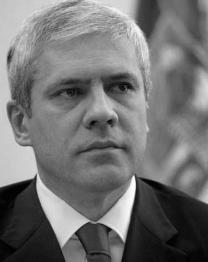

Pasi Hellman is Under-Secretary of State for International Development at the Ministry for Foreign Affairs of Finland since September 2022.
Before his current position, Mr Hellman was Finland’s Consul General in Shanghai, China (2019- 2022), with the responsibility to also cover four neighbouring provinces of Shanghai. He was Managing Director in the Nordic Development Fund in Helsinki (2012-18), and has served in the Board of Directors of the Asian Development Bank in Manila, the Philippines (2004-2007).
In Finland’s foreign service he has held key positions at the Ministry, including Deputy Director General at the Department for Development Policy, Director for International Financial Institutions Division, and Adviser to the Minister for International Development.
He has also worked at the Finnish embassies in the Netherlands and in Kenya. Mr. Hellman has wide experience of board level positions in national and international financial and other institutions, most notably in the African Guarantee Fund, UNU/WIDER, and as Finland’s Governor or Alternate Governor in various international financial institutions (AfDB, ADB, IDB, IFAD).
Throughout his career collaboration and synergies between the public and the private sector have been key guiding principles in his work. Mr. Hellman is a graduate of the Turku School of Economics (currently part of the University of Turku) in Finland, where he obtained the degree of Doctor of Science in Economics (International Business) in 1996 and Master of Science in Economics in 1991.
His Excellency Bob Rae was elected the President of the 2025 session (July 2024 to July 2025) of the Economic and Social Council on 25 July 2024.
He is currently the Ambassador and Permanent Representative of Canada to the United Nations. Before his appointment by the Government of Canada, Mr. Rae served as Canada’s special envoy on humanitarian and refugee issues, continuing the important work that he began in 2017 as Canada’s special envoy to Myanmar while also addressing other pressing humanitarian and refugee issues around the world.
The former premier of Ontario and former interim leader of the Liberal Party of Canada, Mr. Rae was elected 11 times to federal and provincial parliaments between 1978 and 2013. He stepped down as a member of Parliament in 2013 to return to legal practice and, in particular, to work with Indigenous communities and continue his work in education, governance and human rights. His passion for social justice dates back to his early days in student politics and community service.
Before his appointment as Permanent Representative, Mr. Rae was senior counsel at Olthuis Kleer Townshend LLP. In addition to his legal practice, he taught at the University of Toronto in the School of Public Policy and Governance, in the Faculty of Law and at Massey College and Victoria University, and he was a fellow of the Forum of Federations, Massey College and the Raoul Wallenberg Centre for Human Rights. He has also worked as a mediator and arbitrator with ADR Chambers. A former partner at Goodmans LLP, Mr. Rae led the restructuring of the Canadian Red Cross and the Toronto Symphony Orchestra and chaired the board of the Royal Conservatory of Music. He is the author of 5 books and a number of government reports.
Mr. Rae is a privy councillor, a companion of the Order of Canada and a member of the Order of Ontario and has numerous awards and honorary degrees from institutions in Canada and around the world. He received his Honours Bachelor of Arts degree in Modern History from the University of Toronto and a Master of Philosophy degree as a Rhodes Scholar at Oxford University, and graduated from the University of Toronto Faculty of Law.
Born in Madrid in 1973.
Academic background
- Degree in Political Science with a double major in Public Administration and International Relations from the Complutense University of Madrid.
Political and professional career
- Minister for Digital Transformation and Public Function (September 2024-present)
- Head of the Cabinet Office of the Presidency of the Government (2021-2024).
- Chairman and CEO of Paradores (2018-2021).Spokesperson of the Upper House of Parliament Foreign Affairs Committee (2017-2018).
- Spokesperson of the Socialist Parliamentary Group in the Upper House of Parliament (2015-2016).
- Minister for Castilla y León in the Upper House of Parliament (2015-2018).
- Spokesperson for the Socialist Group in the Castilla y León Parliament (2011-2015).
- Spokesperson for the Parliamentary Control Committee of RTVE in the Lower House of Parliament (2004-2011).
- Member in the Lower House of Parliament (2004-2011).
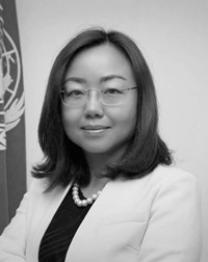
Nan has over 25 years’ experience in strategic management roles both with the United Nations and the private sector across Asia, Africa, North America and Europe. She currently leads a global team in investment and sustainable finance research, policy, investment promotion and facilitation, enterprise development, and technical assistance to governments in over 160 countries. She chairs the Governing Board of the UN Sustainable Stock Exchanges Initiative, leads the World Investment Forum and the inter-governmental Working Group on International Standards of Accounting and Reporting.
Before joining UNCTAD, she served as the Global Director of Sustainable Investments and Innovation at UNOPS, where she led a team to promote infrastructure investments in many developing countries and co-invest with DFIs and private investors. She served as UNOPS focal point in the UN Inter-agency Task Force on Financing for Development.
Previously, she served as the Head of UNDP SDG Innovative Finance and as Head of South-South Cooperation and Investment at UNDP's Asia Pacific Center in Bangkok. She led a team to engage public and private investors and developed national policy dialogues and networks on SDG investment, piloted SDG-aligned funds, bonds and projects in multiple countries. She helped to position UNDP as a pioneer in the UN on sustainable investment and innovative finance. She also held positions as Policy Specialist in Capacity Development and Public-Private Partnerships in New York and Johannesburg since 2009, overseeing a regional portfolio in Eastern and Southern Africa.
Before joining UNDP, she spent about 10 years in the private sector in China and the USA, covering market entry and investment strategy, merger and acquisition, business development and sustainability. She holds a master’s degree in business administration from Hong Kong University of Science and Technology, and participated in the Executive Leadership program at IESE, and Finance Executive program at Tsinghua University.
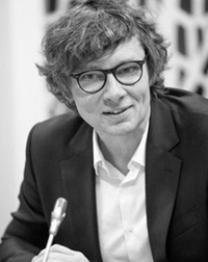
Tomas Lamanauskas is Deputy Secretary-General of the International Telecommunication Union, elected at the ITU Plenipotentiary Conference of 2022, and taking up duties as of January 2023.
His 25 years of experience spans across sectors of telecoms and digital policy, regulation and strategy, stemming from executive level positions in agencies, companies, and organizations across Europe, the Middle East, the Caribbean and the Pacific region.
As Deputy Secretary-General of ITU, Tomas focuses on the financial sustainability and operational excellence of the organization. He also works to raise the digital industry's ambition in fighting the climate crisis through the Green Digital Action initiative and promotes investments into the digital infrastructure as well as digital resilience through the Digital Infrastructure Investment Initiative and other efforts. Additionally, Tomas contributes to the global efforts to harness the opportunities and mitigate challenges of new technologies, in particular Artificial Intelligence, including through his role as a co-chair of the United Nations Inter-Agency Working Group on AI. He is also playing a key role in ensuring ITU's support to other UN-wide development and governance efforts, including through the World Summit of the Information Society process and membership at the Operational Steering Committee of the UN Joint SDG Fund.
Tomas holds Master's Degrees in Public Administration (Harvard), Leadership and Strategy (London Business School), Telecommunications Regulation and Policy (The University of the West Indies) and Law (Vilnius University).
Mathu Joyini is the Permanent Representative of South Africa to the United Nations in New York. Before that, she was the Deputy Director-General at the Department of International Relations and Cooperation, heading the Diplomatic Academy and the Mediation Support Unit.
Prior to joining Government in 2001 January, she held various positions in the private sector in different industries, including Mining, Finance, Petroleum and Consulting, since 1991.
In the private sector, she occupied the following managerial and executive positions:
• Organisational Development Manager: Southern Life
• Consultant: Deloitte and Touche
• General Manager: Exel Petroleum
• Partner: Sediba Consulting.
In Government, she occupied the following managerial and executive positions in the Department of International Relations and Cooperation:
• Chief Director Human Resources.
• Deputy Director-General Human Resources.
• High Commissioner and Ambassador to 6 countries in the Caribbean.
• Permanent Representative of South Africa to the International Seabed Authority.
• Deputy Director General Diplomatic Training and Mediation Support.
Mathu holds the following degrees:
BA in Social Work from the University of the Witwatersrand
MA Degree in Social Work from the University of Pennsylvania, USA
Masters in Business Administration from Wits Business School.
Certificate in Integral Coaching from the University of Cape Town
Certificate in Mediation from Swiss Peace
She is currently the Chair for the Commission on the Status of Women for 2021 to 2023
She co-facilitated the Durban Declaration and Programme of Action 20th Anniversary Political Declaration and its Resolution on Modalities in 2021.
Topics of Interests: Women Peace and Security; Cyber Diplomacy; Leadership Development and coaching for development.
She is a member of the Gertrude Shope Peace and Mediation Network and the African Union Women Mediators Network, FemWise Africa.
Maikel Wilms has been with The Boston Consulting Group since 1998. He is a core member of the Technology, Media & Telecommunications practice.
Maikel has worked extensively with leading telcos for more than 15 years on multiple projects, with a focus on network strategy and roll-out and on B2B commercial strategies. These projects include technology selection for a fixed broadband roll-out, growing ICT businesses, 4G roll-out strategies, and B2B channel optimization.
Maikel has coauthored many BCG publications on telcos and their role in the digital economy.
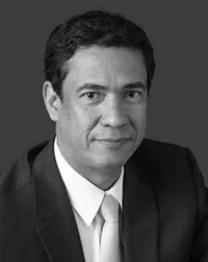
Anderson holds a Ph.D. degree in Finance from the University of Illinois at Urbana-Champaign and has written policy papers covering several different topics related to debt market development and debt management. He has been Practice Manager for Long-Term Finance and focuses in the areas of capital market development and sustainable finance. Prior to the Inter-American Development Bank (IDB), he served the Brazilian Treasury, among others, as Head of the Public Debt Strategic Planning Department, formulating strategies in domestic and international capital markets for the overall government debt portfolio. He was Lead Financial Sector Specialist in the Finance, Competitiveness, and Innovation Global Practice at the World Bank.
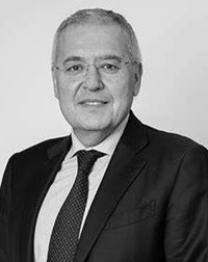
David Kuijper has been the CEO of the Association of European Development Finance Institutions (EDFI) since September 2023. Previously, he served as the Manager of Public Investment and Blended Finance at FMO (the Dutch Development Bank). Prior to that, he worked at the World Bank Group as Advisor on Trust Fund Reform and Financing for Development. He joined the Netherlands Foreign Service in 1998, where he held various positions. He is an alumnus of the Free University Amsterdam, the Netherlands, and University College Dublin, Ireland.
Oliver Bradley is Senior Managing Director and Global Head of Digital Infrastructure Investing, responsible for Digital Infrastructure Investments within the Infrastructure and Energy Capital division of Macquarie Capital. The Digital Infrastructure team invests directly in and supports the growth of companies that are facilitating the increasing data consumption of businesses and consumers, including fibre networks and data centres. Among other deals, Oliver led Macquarie Capital’s investment into Voneus, a UK rural Fixed Wireless to Fibre broadband developer and Onivia, a new SPV Macquarie established to acquire Fibre to the Home networks in Spain, creating Spain's first and largest wholesale only FTTH network with a footprint in excess of 10m homes.
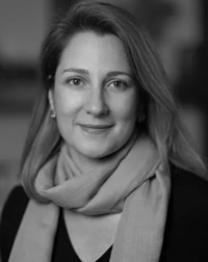
Carla Haddad Mardini became Director of UNICEF’s Private Fundraising and Partnerships Division in Geneva in January 2021. Here she leads the organization's global strategy to leverage the private sector to generate sustainable income for UNICEF and drive partnerships for children worldwide. This includes engaging with the general public (UNICEF’s supporters and donors), philanthropists, foundations, and business to achieve the Sustainable Development Goals for children. She also oversees the coordination, strategic planning and governance with UNICEF’s 32 National Committees that actively engage in child rights advocacy, communication, fundraising and brand positioning.
From 2018 to 2021, Carla served as UNICEF’s Director of the Public Partnerships Division in New York, leading the organization's resource mobilization from the public sector and overseeing its engagement with permanent missions and governments on multilateral affairs in the inter-governmental space.
Prior to joining UNICEF, Ms. Haddad Mardini had served at the International Committee of the Red Cross over a period spanning 17 years. Until the end of 2017, she was the Head of the Resource Mobilization Division, leading donor relations, fundraising and government affairs. She previously held the position of Chief Spokesperson and Head of the Public Communication Division. She spent the early years of her career in the field, covering protection and family links programmes in the Middle East and Africa, serving in Kurdistan and Baghdad in Iraq, in the Democratic Republic of the Congo and in Ethiopia.
She holds a Bachelor of Arts in Philosophy and Political Science from the American University of Beirut, Lebanon; a Master's Degree in Comparative Literature from Dartmouth College in the United States, and a Master's Degree in International Relations with a focus on international negotiation, mediation and conflict resolution from the Fletcher School of Law and Diplomacy at Tufts University, in the United States.
Born and raised in Lebanon, she is a Lebanese and Swiss national. She is fluent in Arabic, French and English. She is married and has two daughters.
Mr Amrane was appointed by His Majesty King Mohammed VI as Chief Executive Officer of Ithmar Capital in February 2019.
Prior to this appointment, Mr Amrane was Deputy CEO of the Moroccan Agency for Sustainable Energy (MASEN). He was a member of the Executive Board since its creation in 2010.
His previous experience in the economic and financial areas and his engineering capabilities allowed him to oversee all the procedures and operations within MASEN, from development to legal engineering, partnerships and financing.
From 2006 to 2010, Mr Amrane was the managing director of the Moroccan subsidiary of the BPCE Group to develop the activities of the French banking group in Morocco's banking and real estate sectors. Prior to that, Mr Amrane held various positions in the Moroccan Ministry of Economy and Finance. He was a Public Finance Inspector, Head of the Debt Restructuring Service at the Treasury Division, and then Head of Credit within the same division.
Mr Amrane holds a dual degree in engineering from Hassan II Institute of Agronomy and Finance from the General Inspectorate of Finances and the Association of Investment Management & Research (certification).
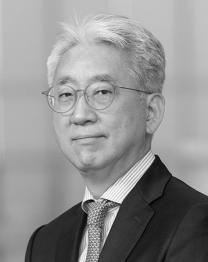
Hun Kim is the Director General of the Sectors, Themes and Finance Solutions Department (STF) and is responsible for developing the technical excellence of the Bank’s investment operations and expanding the Bank’s operational knowledge across all sectors and cross-cutting themes, such as climate and nature, regional cooperation, private capital mobilization, and digital technology solutions in support of both sovereign and non-sovereign investment operations. Under his leadership, STF performs a proactive and strategic role in shaping the direction and impact of AIIB’s investment operations. The department takes the lead in introducing and operationalizing new products and financing modalities, and carrying out upstream work to cultivate institutional expertise, supports and incubates new initiatives and emerging technologies, provides advisory services for public-private partnerships, and promotes growth in other productive sectors. Previous to his appointment, Kim played a pivotal role in building AIIB’s social infrastructure portfolio from the ground up. Kim is a seasoned development professional who has built his skills and expertise throughout his long and successful career in the Asian Development Bank (ADB) where he has held various leadership positions, the last of which was Director General, South Asia Department. Prior to that, he was ADB’s Country Director in India Country Office. He holds a Ph.D. in Applied Economics from the University of Minnesota, USA and an MA and BA in Economics from Yonsei University, Republic of Korea. Kim is from the Republic of Korea.
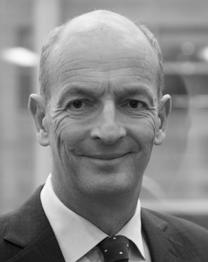
Mark Bowman is EBRD Vice President for Policy and Partnerships and joined the Bank in October 2021.
Prior to arriving at the EBRD, Mr Bowman was Director General International Finance at the UK Treasury, with oversight of international and European Union (EU) policy. He led engagement with foreign finance ministries and central banks and was the Chancellor of the Exchequer’s deputy at the G7, G20 and International Monetary Fund (IMF). He also had responsibility for UK policy and engagement with the multilateral development banks, including the EBRD and Asian Infrastructure Investment Bank (and was the UK chief negotiator in discussions on establishing the AIIB).
Until 2019 Mr Bowman was the UK representative on the EU’s Economic and Financial Committee and chaired the sub-committee on IMF issues. He subsequently led the UK Treasury’s work on EU exit and was a member of the UK team negotiating the Withdrawal Agreement. He was also a member of the Treasury’s Executive Management Board.
Mr Bowman started his career as an Overseas Development Institute Fellow, working in the Mozambican Ministry of Planning and Finance. He joined the UK Treasury in 1995 and held a number of positions there, covering both domestic and international economic policy, including Principal Private Secretary to the Chancellor of the Exchequer, Director International Finance, and Director Strategy, Planning and Budget.
He also worked for two years in the Department for International Development (DFID) as Director General Humanitarian, Security and International Finance, with oversight of the DFID’s humanitarian programmes, its work in the Middle East and relations with the World Bank.
Mr Bowman has an economics degree from the University of Bristol, and a masters degree in development economics from the University of Warwick.
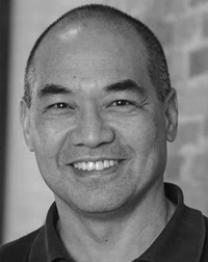
Alex has over 30 years professional experience in a series of leadership roles that has consistently focused on building partnerships to address the world's biggest development challenges. Since February 2019, Alex has been serving as Senior Strategy Advisor to the Director of the Telecommunications Development Bureau at the International Telecommunication Union (ITU), the United Nations specialized agency for information and communication technologies (ICTs). In this role he is also co-leading Giga, a joint project between ITU and UNICEF to connect every school to the internet, and every young person to information, opportunity, and choice.
Prior to joining the ITU, Alex has worked in both the private and not-for-profit sectors. From 2018-2019, he served as President of CG/LA Infrastructure, where he oversaw all operations and the development and implementation of a new strategy to advance development in the world’s infrastructure markets. From 2000 to 2018, Alex was a member of the Executive Committee at the World Economic Forum, an international organization for public private cooperation with a mission to improve the state of the world. At the WEF, he held several leadership roles including overseeing the development and rollout of the Forum’s Global System Initiatives; heading the Future of the Digital Economy & Society initiative; heading the IT & Telecoms, Media & Entertainment industry teams; heading the Basics & Infrastructure industry teams; and heading the Center for Global Industries Geneva. From 1988-2000, Alex worked for 12 years in a variety of professional roles at Accenture as a Strategy Consultant, General Motors as a Quality Control Engineer, and the US National Parks Service.
He has a degree in Mechanical Engineering from the University of Toronto, and a Masters in Public Administration from Harvard University
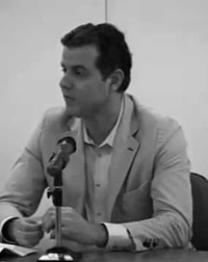
Massimo Meloni is Chief of the Policy Research Section in the Division on Investment and Enterprise of the UN Trade and Development (UNCTAD).
At UNCTAD, Mr. Meloni leads the organization’s global research and analysis on national investment policies. He coordinates the national investment policy monitoring programme, authors the policy chapters of the annual World Investment Reports and provides expert policy advice to Governments, particularly in support of improving the legal and regulatory framework for sustainable investment. He has also contributed to high-level multilateral deliverables, including the G20 Compendium on Promoting Sustainable Investment adopted under the Indonesian Presidency.
Before his current role, Mr. Meloni coordinated the preparation of Investment Policy Reviews (IPRs) for over 20 developing countries and economies in transition. These comprehensive assessments evaluate a country’s policy, regulatory and institutional environment for investment. He also oversaw follow-up technical assistance to support governments in areas such as investment law reform, sector regulation, tax policy, and investment facilitation.
Prior to joining UNCTAD, Mr. Meloni worked in the Monitoring and Evaluation Department of the International Federation of the Red Cross and Red Crescent Societies, where he developed performance assessment tools and authored the organization’s annual self-assessment report.
Mr. Meloni holds a master’s degree in International Economics from the Graduate Institute of International and Development Studies in Geneva, and a master’s degree in Political Science from LUISS University in Rome.



